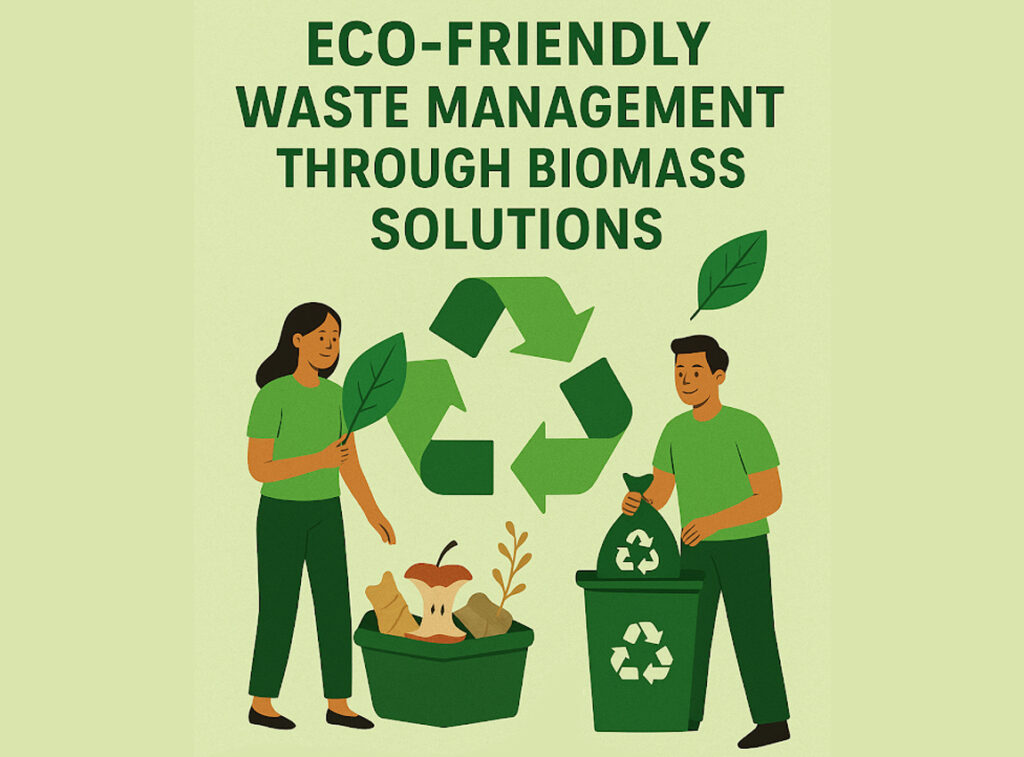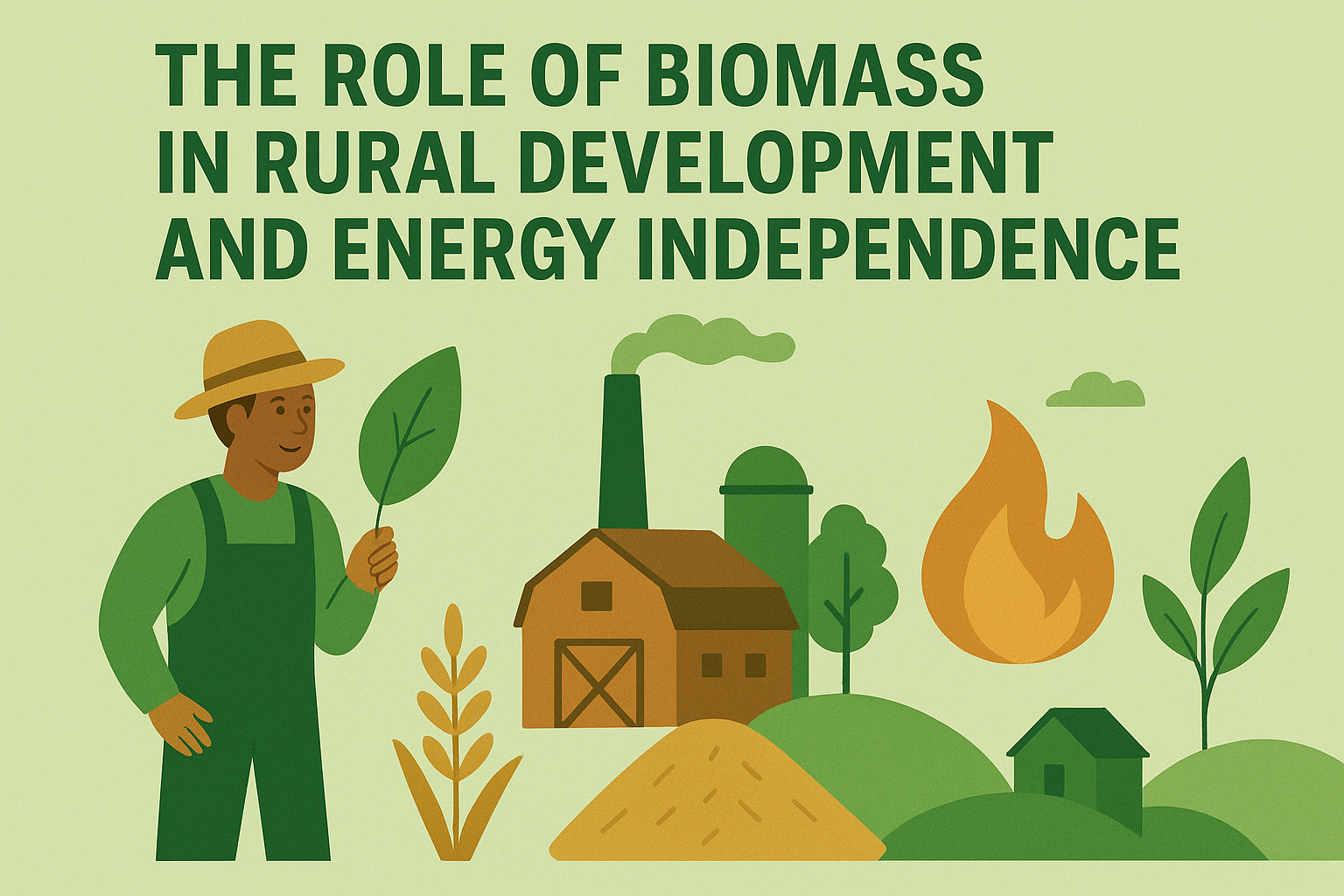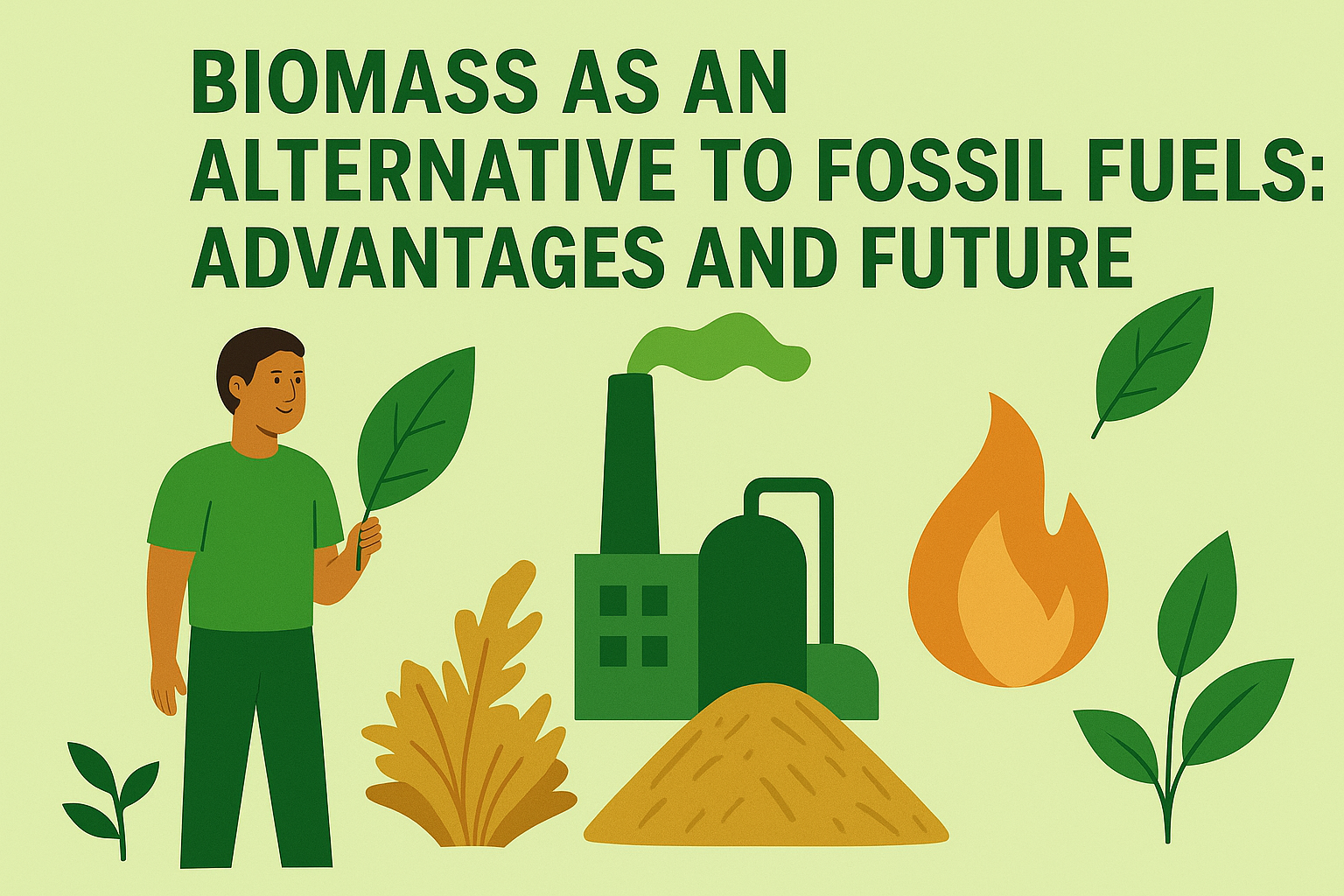Waste Management has become one of the most pressing challenges of our times. Rapid urbanisation, rising consumption levels, and industrial growth have led to an unprecedented amount of solid agricultural as well as industrial wastes. If left unmanaged, the waste contributes to pollution depletion of natural resources, as well as greenhouse gas emissions.
Traditional waste disposal methods, including landfilling, incineration and open dumping, are unsustainable and harmful to the environment. Amidst these challenges, Biomass Solutions have come up in the form of game changers. They have been transforming the agricultural residues, organic waste, forestry by-products and other biodegradable materials into valuable energy sources.
In this regard, biomass technologies offer an eco-friendly pathway for the management of waste, while also meeting growing energy demands. Moreover, the advanced technologies like Briquetting Machines and Pelleting Machines have been enabling the efficient utilisation of biomass, ensuring that it serves in the form of a viable and scalable waste-to-energy option.
This article explores the role of biomass in sustainable waste management, the long-term benefits for the community, industries and the environment, in addition to learning how the technology has been driving the sector.
Understanding biomass in waste management
Biomass refers to the organic matter that is derived from plants, organic waste streams, as well as animals. Instead of just discarding the material into landfills or burning it in the open fields, biomass can be converted into clean energy and bio-based products.
Types of waste suitable for biomass conversion include agricultural residues that involve as rice husks, corn stalks, wheat straw, as well as sugarcane bagasse. Forestry Waste includes sawdust, wood chips, logging residues and bark. Municipal organic waste includes food scraps, yard waste, and paper products. Industry byproducts include the organic waste from food processing and breweries. The transformation of the waste into energy for value-added products ensures landfill dependency reduction, lowering of the methane emissions, as well as creation of renewable energy resources.
Biomass solutions for eco-friendly waste management
Biomass solutions provide a holistic approach for handling waste sustainably, emphasising recycling, converting organic waste into usable products, and reduction of both environmental and economic costs. Key biomass-based waste management strategies include the following:
- Direct Combustion – commercial, agricultural and forestry residues can be burnt in controlled environments for the generation of heat and electricity. Unlike open burning, this procedure ensures higher efficiency and lower emissions.
- Gasification and pyrolysis – biomass is thermochemically converted into syngas or bio-oil that can replace fossil fuels in industrial processes.
- Aerobic digestion – food waste and livestock manure can be broken down by microorganisms in oxygen-free environments, producing biogas in the form of clean fuel and nutrient-rich slurry that is used in organic fertiliser.
- Briquetting and Pelleting- Briquetting Machines and Pelleting Machines help compact loose biomass waste into dense fuel forms in the form of the briquettes and pellets that are easy to store, transport, and burn efficiently.
Briquetting Machines turning waste into briquettes.
Briquetting Machines play a huge role in modern biomass solutions. They compress the loose biomass materials like husks, sawdust and crop residues into solid blocks that are referred to as briquettes. They ensure efficient waste management involving the conversion of the waste that would otherwise be discarded. Also, they guarantee the high energy density, ease of transport and storage. The reduced pollution is one of the major advantages, in addition to the availability of rural income, opportunities.
Briquettes are useful for household cooking and heating. Also, they are the perfect fuel for the rural industries such as pottery and brick kilns. The replacement for coal in the industrial boilers and furnaces finds a multitude of purposes by integrating the Briquetting into waste management. Rural and urban communities have been looking forward to reducing the waste volumes while also producing eco-friendly fuels.
Pelleting Machines creating biomass pellets
Pelleting Machines transform biomass residues into uniform cylindrical pellets as highly efficient fuels with consistent size, shape and energy density. Uniformity is one of the major advantages because they have consistent dimensions, making this suitable for the automated combustion systems. Also, they are fit and in terms of the low moisture content, export potential, as well as the storage and transport benefits. Pellets find wide use in domestic and industrial heating systems. Renewable fuel for Export markets, pellets can also serve well in the power plants, generating electricity. By deploying the pelleting machines, waste from farms, sawmills, and food industries can be conversion into a commercially valuable commodity.
Benefits of Biomass solutions in waste management
- Environmental sustainability – biomass reduces reliance on landfills and lower methane emissions. Additionally, biomass fuels are also carbon neutral as the carbon dioxide released during combustion equals the carbon dioxide that is absorbed by the plants during growth.
- Energy independence – Countries and communities can reduce their Reliance on imported fossil fuels by generating energy locally from biomass waste.
- Economic opportunities – by converting waste into energy biomass solutions, generate new business opportunities for entrepreneurs, local communities, as well as farmers. Briquetting and Pelleting plants can also become revenue-generating ventures.
- Improved waste Disposal – instead of just dumping or burning waste biomass, technologies ensure waste is recycled into valuable products that minimise environmental hazards and also promote circular economy principles.
- Social benefits – biomass industries create jobs in collection, transportation. Also, they improve the living standards by providing clean cooking and heating fuels.
Biomass versus conventional waste management
Traditional waste management often involves land filling, incineration or open burning; all such methods are unsustainable due to the high greenhouse gas emissions, loss of resources as well and groundwater contamination. In contrast, biomass solutions offer resource recovery instead of disposal, ensure the job creation instead of environmental degradation, guarantee cleaner energy production instead of pollution, while also guaranteeing long-term sustainability over short-term fixes.
Conclusion
Eco-friendly waste management requires innovative, sustainable approaches that not only reduce environmental pollution but also guarantee the creation of value. Biomass solution stands out in the form of a scalable, practical and green strategy for turning waste into wealth. Adopting technologies like Briquetting Machines and Pelleting Machines will help the communities transform their agricultural residues, organic waste and forestry by-products into cleaner fuels and energy. All such benefits extend beyond waste reduction because it can also serve in the form of the income generation path. It can create jobs and reduce reliance on fossil fuels, and also contribute to the global climate goals. With the right investment, awareness policies, biomass can now revolutionise how societies handle waste, making the world a cleaner, more self-reliant and greener place.



